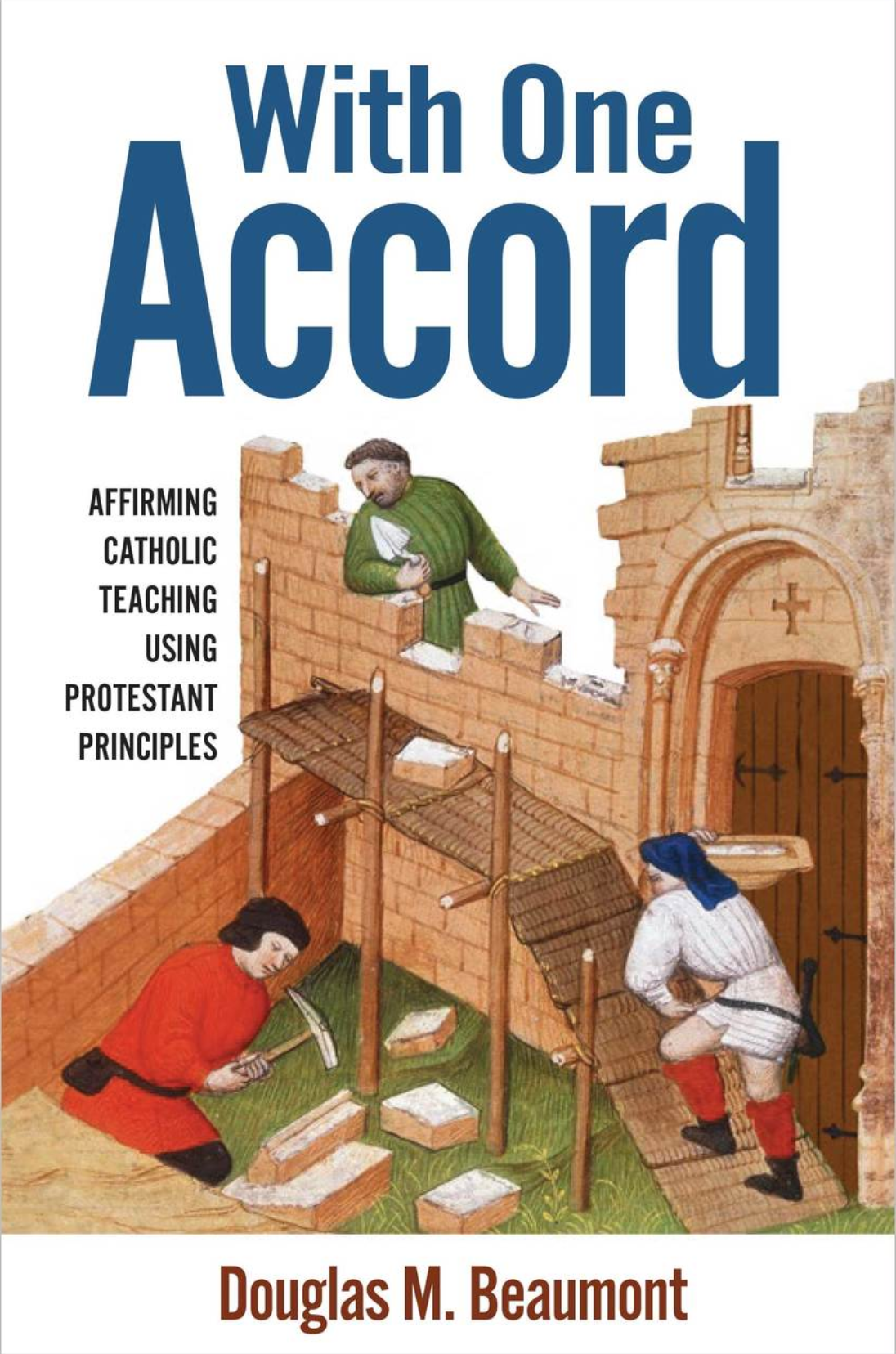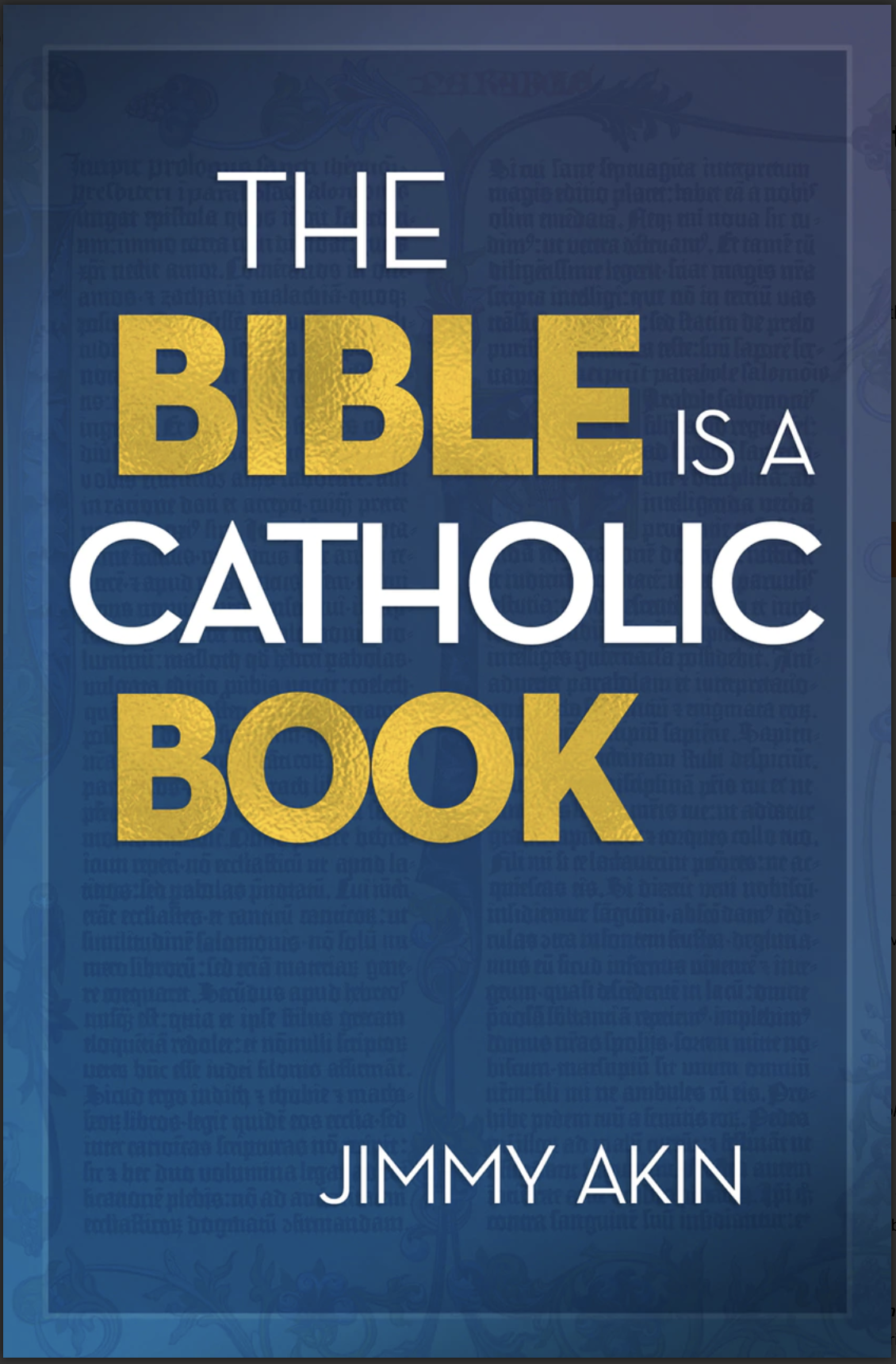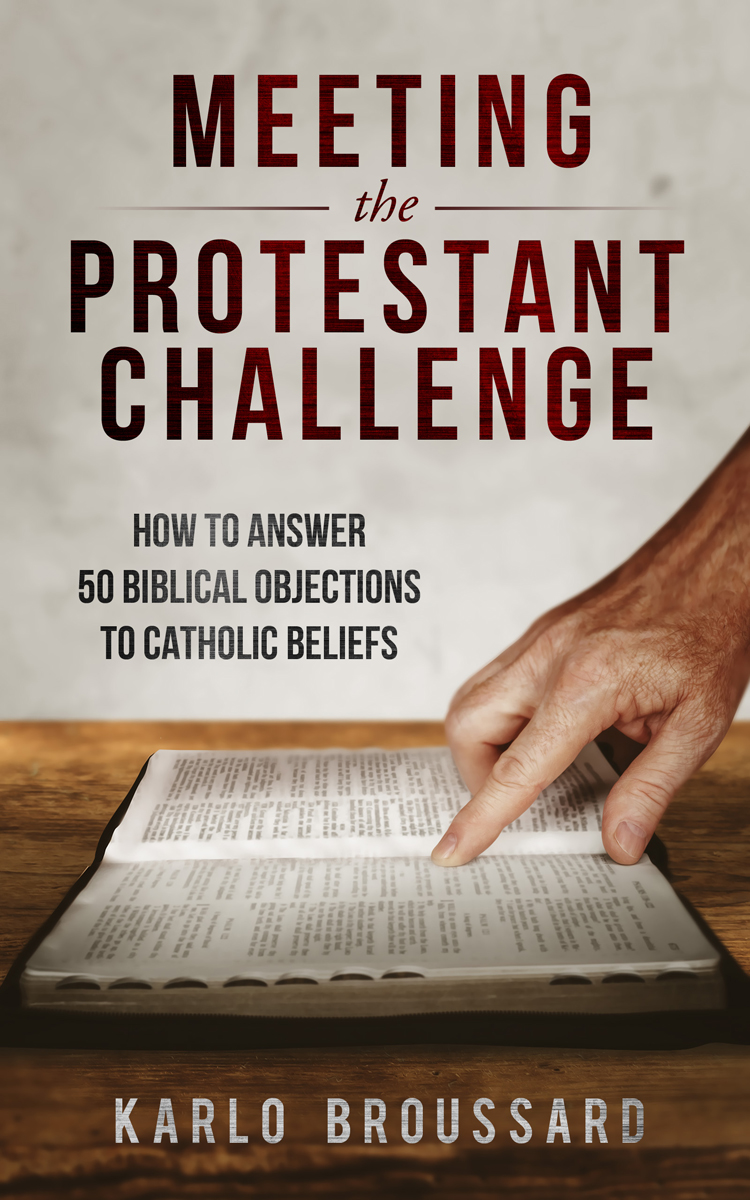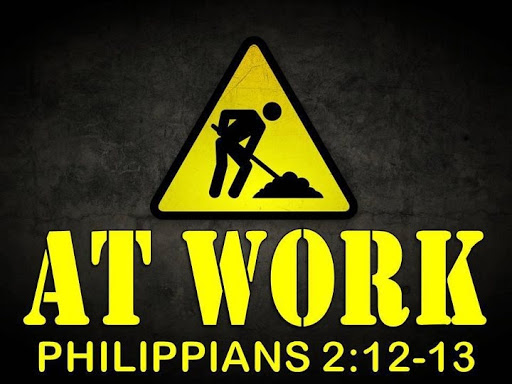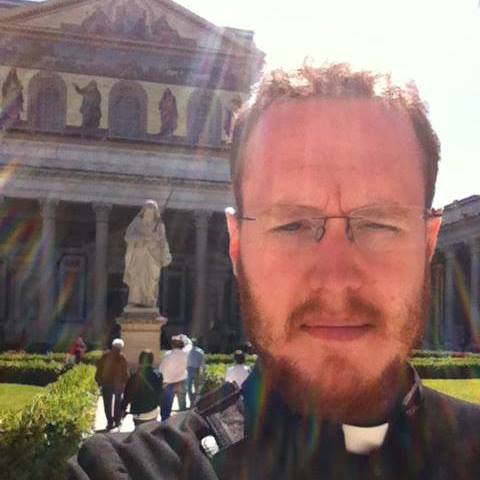
“There is no sound tree that produces rotten fruit, nor again a rotten tree that produces sound fruit. For every tree can be told by its own fruit: people do not pick figs from thorns, nor gather grapes from brambles. A good man draws what is good from the store of goodness in his heart; a bad man draws what is bad from the store of badness. For a man’s words flow out of what fills his heart.” -Lk 6:43-45
https://www.catholicbible101.com/judgenot.htm
“How many people today take Mt 7:1 from the Bible and apply it wrongly? They will tell others that no one can tell them that what they are doing is wrong, because that would be judging them. Then they throw out the verse where Jesus said “Let he who is without sin cast the first stone”. And since we are all sinners, then that means that no one can tell anyone that what they are doing is sinful.
Let’s take a look at this strange philosophy and dissect it. First off, “to judge”, as it is used in “Judge not, lest you be judged”, means to condemn someone on moral grounds, and then to pass judgment. Only God can condemn and pass judgment. “To judge” as it is used here does not mean that people cannot discern that an act is sinful, nor does it mean we can’t tell the sinner that he or she is sinning. If that were so, then parents could not ever tell their child that it is wrong to lie, to cheat, or to steal. And if the child were caught in the act, then no parent could tell him or her that they were wrong. And they could certainly not ever punish the child, because there could never be any wrongdoing. How dumb is that? Carried to its logical conclusion, no one could ever tell anyone that anything is sinful or wrong, including fornication, adultery, stealing, murder, taking the Lord’s name in vain, etc. And we would have to fire every judge in every courtroom worldwide. St. John the Baptist, the greatest man born of woman, according to Jesus, certainly told Herod that it was wrong for him to have married his own brother’s wife. And John the Baptist was certainly not judging Herod himself, but rather, he was judging his action as sinful. BIG difference.
In today’s society, someone caught fornicating or getting drunk all of the time will tell his or her accuser, “Who are you to judge me?” And the accused sinner will then feel morally superior to his accuser for having pointed out to him that he is not God, and how dare he, with all of his sins, “judge me”? But this action flies in the face of the spiritual work of mercy that commands Christians to admonish the sinner. To admonish the sinner means to caution him or her about a particular sin they are committing. This is the job of all Christians, to warn others about sin and where it will lead them.
And St. James says that correcting a sinner has many spiritual benefits, not only for the sinner, but also for us:
James 5:20: “Let him know that whoever brings back a sinner from the error of his way will save his soul from death and will cover a multitude of sins.”
And whether we want to admit it or not, we are indeed our brother’s keeper:
Genesis 4:9: Then the LORD said to Cain, “Where is Abel your brother?” He said, “I do not know; am I my brother’s keeper?”
Secular society today does not want to hear any of this, because it believes that this world is all there is, and that we will not come to a supernatural end in heaven or hell. So, the hedonists in charge of government and media today belittle Christians for having the audacity to even mention to others about the wages of sin (which is death). GK Chesterton once said that only dead bodies float downstream with the current; it takes live ones to go against the flow. And this is so true in society today. How many people just go with the flow of pornography, fornication, adultery, homosexual marriage, abortion, assisted suicide, etc., and never speak out against these evils because they don’t want to be belittled by the so-called “mainstream media”? A lot. The devil only has one commandment, “Do as you will”. So many people in the world today follow that demonic philosophy, and they really hate it when Christians bring up the fact that sin exists.
To sum up, judging the actions of a person as being sinful is NOT condemning a person and passing judgment. It would be wrong to say to a person, “You are an adulterer, and you are going to hell”. It would not be wrong to tell a person “You are committing adultery, and that is sinful. You need to repent of it, go to confession, and never do it again, because it breaks one of the Ten Commandments”. The former is passing judgment; the latter admonishes the sinner. Big difference. A judge passes sentence; discernment of people’s sinful actions does not. A good rule of thumb to follow is that we humans do all of the praying, and we let God do all of the judging of people. That in no way stops us from discerning that a person’s actions are wrong and sinful.
Here are some excellent scripture verses on judging:
Leviticus 19:15: “You shall do no injustice in judgment; you shall not be partial to the poor or defer to the great, but in righteousness shall you judge your neighbor.”
Proverbs 31:9: “Open your mouth, judge righteously; maintain the rights of the poor and needy.”
Matthew 7:2: “Judge and you will be judged, and the measure you give will be the measure measured unto you.”
Luke 6:37: “Judge not, and you will not be judged; condemn not, and you will not be condemned; forgive, and you will be forgiven;
(**NOTE—Here we see the link between judging and condemning)
Matthew 18:15: “If your brother sins against you, go and tell him his fault, between you and him alone. If he listens to you, you have gained (won over) your brother.”
(**NOTE – Here is a prime case of Jesus telling us all to admonish the sinner).
Luke 7:40-43: And Jesus answering said to him, “Simon, I have something to say to you.” And he answered, “What is it, Teacher?” “A certain creditor had two debtors; one owed five hundred denarii, and the other fifty. When they could not pay, he forgave them both. Now which of them will love him more?” Simon answered, “The one, I suppose, to whom he forgave more.” And he said to him, “You have judged rightly.”
(**NOTE – Here we see the use of the term “judged” in the context of judging someone’s actions, rather than personal condemnation).
Luke 12:57: “And why do you not judge for yourselves what is right?
(**NOTE – Once again, we see the use of the term “judge” in the context of judging actions, not condemning people and passing judgment).
John 7:24: Do not judge by appearances, but judge with right judgment.”
(**NOTE – Here Jesus commands us to judge people’s actions and deeds with “right judgment”.)
Acts 4:19: But Peter and John answered them, “Whether it is right in the sight of God to listen to you rather than to God, you must judge;
(**NOTE – Another case of judging people’s actions, rather than the person).
1 Corinthians 2:15: The spiritual man judges all things, but is himself to be judged by no one.
1 Corinthians 6:2-3: Do you not know that the saints will judge the world? And if the world is to be judged by you, are you incompetent to try trivial cases? Do you not know that we are to judge angels? How much more, matters pertaining to this life!
(**Note – No wonder satan hates Christians so much – we will be judging him one day!)
Hebrews 10:30: For we know him who said, “Vengeance is mine, I will repay.” And again, “The Lord will judge his people.”
(**NOTE – Here we see that the Lord judges people. That in no way precludes us from judging whether or not people’s actions are sinful or not.)
James 4:12: There is one lawgiver and judge, he who is able to save and to destroy. But who are you that you judge your neighbor?
(**NOTE – James says that we should not judge our neighbor. Once again, this does not stop us from judging whether or not our neighbor’s actions (killing his wife, stealing money, etc.) is sinful. Note how this differs from James 5:20 above, where James talks about bringing a sinner back from the error of his ways (sinfulness)).”

-by Jimmy Akin, a former Presbyterian, Jimmy is a convert to the Faith and has an extensive background in the Bible, theology, the Church Fathers, philosophy, canon law, and liturgy.
“CHALLENGE: “Christians shouldn’t criticize others’ lifestyles or actions. Didn’t Jesus say not to judge?”
DEFENSE: Jesus didn’t tell us that we should close our eyes to moral evil in the world.
The exhortation not to judge is found in Jesus’ major ethical discourse (Matt. 5:1–7:29, Luke 6:17–49). The point of the discourse is to give moral instruction. In it, Jesus discusses what conduct counts as good and bad, and he expects his followers to acknowledge the difference.
Not only does he expect them to distinguish between good and evil in their own behavior, he also expects them to do so with others’ conduct, telling them, “You will know them by their fruits” (Matt. 7:20). Thus, whatever Jesus meant, it was not that we should pretend that nobody does evil.
What he did mean is not difficult to discern if we read the statement itself: “Judge not, that you be not judged. For with the judgment you pronounce you will be judged, and the measure you give will be the measure you get” (Matt. 7:1–2); “Judge not, and you will not be judged; condemn not, and you will not be condemned; forgive, and you will be forgiven” (Luke 6:37).
Jesus is saying we should take a generous, forgiving attitude with others so God will take a generous, forgiving attitude with us. We should treat others as we want to be treated. This is a prominent theme in his teaching (cf. Matt. 5:43–48, 6:12–15, 7:12, 18:21–35).
Although we are to be forgiving and merciful to others, this does not mean ignoring, much less approving, immoral behavior. Neither does it mean we should not try to help others. Admonishing the sinner is a spiritual work of mercy. Scripture elsewhere says: “Let him know that whoever brings back a sinner from the error of his way will save his soul from death and will cover a multitude of sins” ( James 5:20).
Often the exhortation not to judge is used as a conversation stopper to shut down discussions of immoral behavior. Sometimes it carries the insinuation that the one “judging” is doing something morally wrong. When this is the case, the person making the accusation is himself judging, and thus risks being a hypocrite (cf. Matt. 7:3–5).”

-by Jim Blackburn, Catholic Answers
“An adult child who’s living with her boyfriend or coping with an adult sibling who has announced that he is gay, we often struggle with whether to allow the child or sibling to practice the immoral lifestyle. What do I tell my kids? How do I deal with this in a loving way? Can I truly love my neighbor while rejecting an immoral lifestyle?
Often people in these situations have tried to take some action already, only to be shot down immediately with the accusation that they are being “judgmental,” that the Bible teaches us not to judge others, that they should just mind their own business. “After all,” they’re told, “I’m not judging you and you shouldn’t be judging me. Read the Bible.” But is that really what the Bible teaches?
When pressed to show where the Bible supports this, those who can come up with any response at all usually point to Jesus’ words found in the Gospel of Matthew, “Judge not, that you not be judged.” Most people will stop there, with the clear conviction that the Bible teaches that we are not to pass any form of judgment on others. A closer look at this Bible verse and other related verses, however, uncovers a different understanding of Jesus’ teaching.
First, let’s look at the full context of Jesus’ words:
“Judge not, that you be not judged. For with the judgment you pronounce you will be judged, and the measure you give will be the measure you get. Why do you see the speck that is in your brother’s eye, but do not notice the log that is in your own eye? Or how can you say to your brother, “Let me take the speck out of your eye,” when there is the log in your own eye? You hypocrite, first take the log out of your own eye, and then you will see clearly to take the speck out of your brother’s eye.” (Matt. 7:1-5)
If we break this passage down line by line, it becomes clear that Jesus was not telling his disciples that they could not ever judge the behavior of others. Rather, he was cautioning them to live righteous lives themselves so that their judgment of others’ behavior would not be rash judgment and their efforts would be effective in admonishing their neighbors.
“Judge not, that you be not judged.” By itself, this statement could be construed to mean that one may escape even God’s judgment simply by not judging the behavior of others. Of course, everyone is judged by God, so this cannot be a proper understanding. Jesus goes on to reformulate his statement in a positive way: “With the judgment you pronounce you will be judged, and the measure you give will be the measure you get.” Jesus indeed expects his disciples to judge but he warns that they, too, will be judged in a like manner.
This is reminiscent of the line in the Lord’s Prayer, “forgive us our trespasses as we forgive those who trespass against us” (Matt. 6:12). Much more than a simple warning that God will treat us as we treat others, this is an appeal to each of us to be as much as we can like God in the way that we treat others. The Catechism of the Catholic Church explains, “there has to be a vital participation, coming from the depths of the heart, in the holiness and the mercy and the love of our God. Only the Spirit by whom we live can make ‘ours’ the same mind that was in Christ Jesus” (CCC 2842).
In the next two lines Jesus cautions against hypocrisy: “Why do you see the speck that is in your brother’s eye, but do not notice the log that is in your own eye? Or how can you say to your brother, ‘Let me take the speck out of your eye,’ when there is the log in your own eye?” Judging hypocritically is not effective. A petty thief admonished by a bank robber only scoffs at his admonisher.
Jesus then explains how to judge rightly: “First take the log out of your own eye, and then you will see clearly to take the speck out of your brother’s eye.” Much to the point of this article, there can be no doubt that those final words—”take the speck out of your brother’s eye”—are, indeed, permission to judge so long as it is done rightly.
Other Bible passages which seem on the surface to indicate a condemnation of judging others’ behavior may be treated similarly in their full context. The idea of rightly judging the behavior of others can be found throughout the New Testament.
Jesus told the Jews, “Do not judge by appearances, but judge with right judgment” (John 7:24).
He instructed his disciples what to do if someone sins against them:
Go and tell him his fault, between you and him alone. If he listens to you, you have gained your brother. But if he does not listen, take one or two others along with you, that every word may be confirmed by the evidence of two or three witnesses. If he refuses to listen to them, tell it to the church; and if he refuses to listen even to the church, let him be to you as a Gentile and a tax collector. (Matt. 18:15-17)
It is not possible to follow Jesus’ instructions without being “judgmental” of another’s behavior.
Paul, too, exhorted right judgment of other Christians: “For what have I to do with judging outsiders? Is it not those inside the church whom you are to judge? God judges those outside. Drive out the wicked person from among you” (1 Cor. 5:12-13).
Also, “Do you not know that the saints [i.e. Christians] will judge the world? And if the world is to be judged by you, are you incompetent to try trivial cases? Do you not know that we are to judge angels? How much more, matters pertaining to this life!…Shun immorality” (1 Cor. 6:2-18).
A look at the Old Testament reveals similar teaching: “You shall do no injustice in judgment; you shall not be partial to the poor or defer to the great, but in righteousness shall you judge your neighbor” (Lev. 19:15).
Clearly, contrary to what many would prefer to believe, the Bible exhorts us to rightly judge the behavior of others. The Catholic Church teaches likewise but cautions us just as Jesus did the disciples:
Respect for the reputation of persons forbids every attitude and word likely to cause them unjust injury. He becomes guilty: of rash judgment who, even tacitly, assumes as true, without sufficient foundation, the moral fault of a neighbor; of detraction who, without objectively valid reason, discloses another’s faults and failings to persons who did not know them; of calumny who, by remarks contrary to the truth, harms the reputation of others and gives occasion for false judgments concerning them.
To avoid rash judgment, everyone should be careful to interpret insofar as possible his neighbor’s thoughts, words, and deeds in a favorable way: “Every good Christian ought to be more ready to give a favorable interpretation to another’s statement than to condemn it. But if he cannot do so, let him ask how the other understands it. And if the latter understands it badly, let the former correct him with love. If that does not suffice, let the Christian try all suitable ways to bring the other to a correct interpretation so that he may be saved.” (CCC 2477-2478)
Having said all that, there is a big difference between judging another’s behavior and judging the eternal state of his soul. The latter judgment belongs only to God. Jesus addressed this type of judgment too:
The Father judges no one, but has given all judgment to the Son, that all may honor the Son, even as they honor the Father. He who does not honor the Son does not honor the Father who sent him. Truly, truly, I say to you, he who hears my word and believes him who sent me, has eternal life; he does not come into judgment, but has passed from death to life. Truly, truly, I say to you, the hour is coming, and now is, when the dead will hear the voice of the Son of God, and those who hear will live. For as the Father has life in himself, so he has granted the Son also to have life in himself, and has given him authority to execute judgment, because he is the Son of Man. Do not marvel at this; for the hour is coming when all who are in the tombs will hear his voice and come forth, those who have done good, to the resurrection of life, and those who have done evil, to the resurrection of judgment. I can do nothing on my own authority; as I hear, I judge; and my judgment is just, because I seek not my own will but the will of him who sent me. (John 5:22-30)
Clearly, in this context, Jesus was speaking of judgment as condemnation or eternal damnation. Such judgment is reserved to him alone.
So, when faced with the immoral behavior of loved ones, how can we be sure to rightly judge behavior? In Jesus’ own words, we must start by taking the logs out of our own eyes—by making sure we are doing the best we can to live lives of good example. We must also strive to form our consciences correctly so that we know sin when we see it. Finally, we must not jump to conclusions about another’s culpability in sin. Doing all this will help to ensure that our admonitions are seen as the loving actions we intend them to be—meant to help our loved ones live their lives in ways that are pleasing to God. Only then can our efforts be effective in helping to take these ugly specks out of our brothers’ eyes.”
Love,
Matthew



